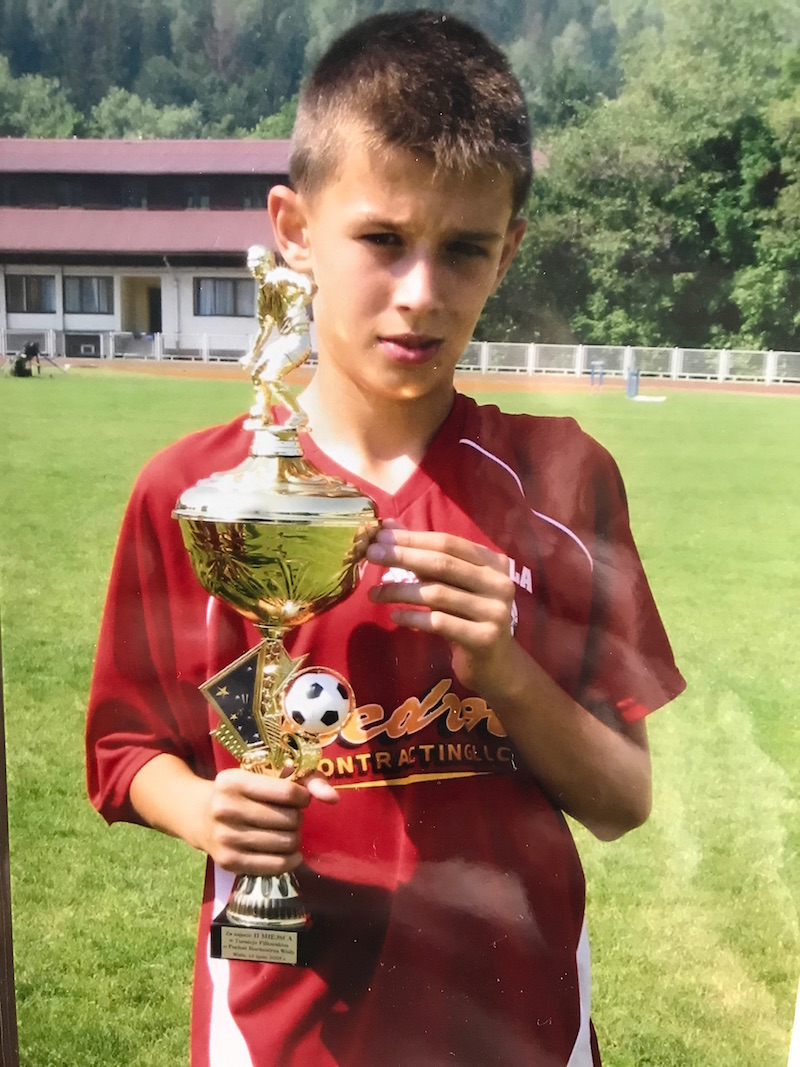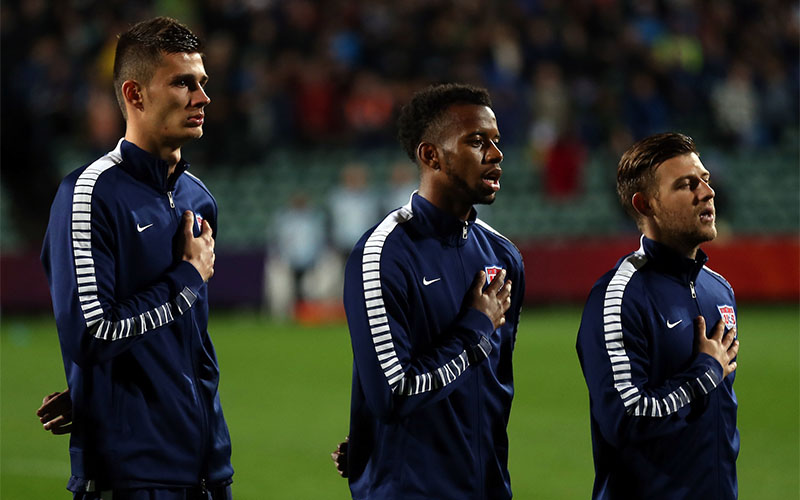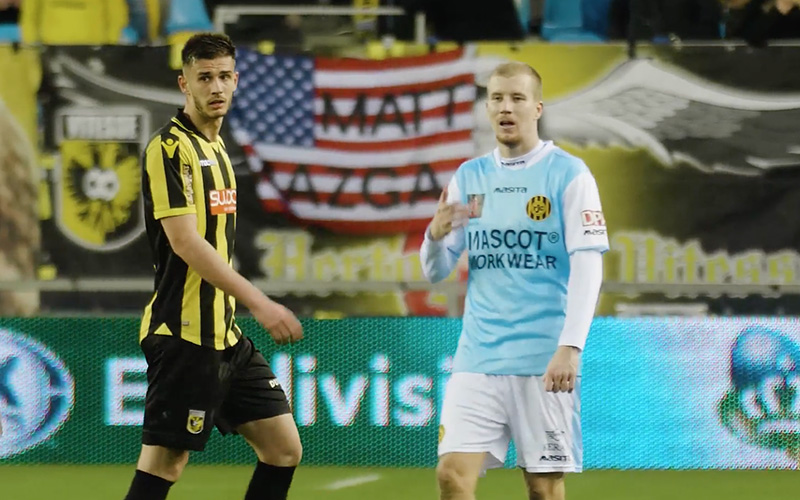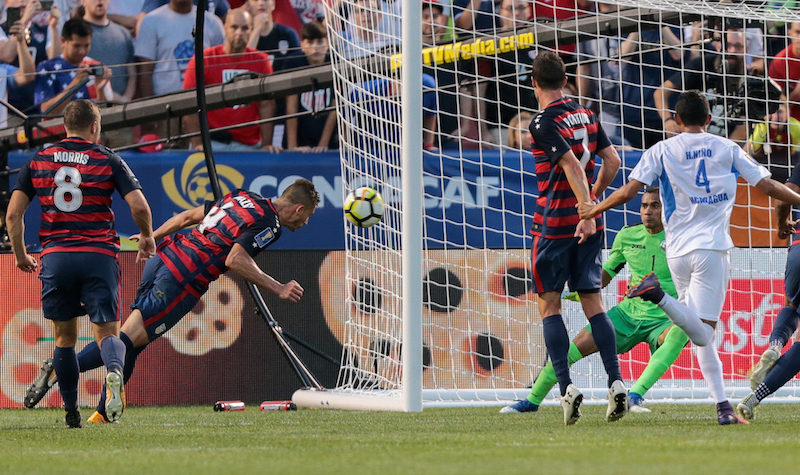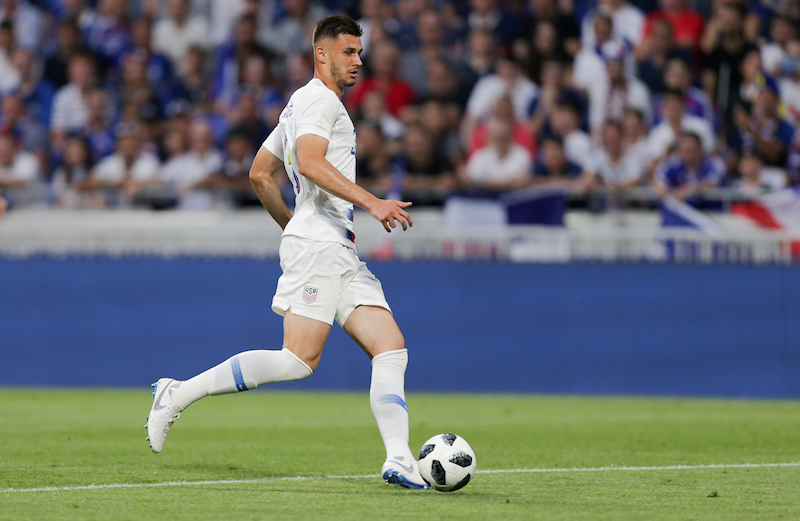Arnhem sits on the banks of the Rhine River, a sleepy Dutch city 60 miles from Amsterdam. The town usually enjoys a quiet existence, except for the roars that emanate every weekend from the legions of black-and-yellow-clad fans that pack the GelreDome, home to Arnhem’s top attraction: Vitesse.
Matt Miazga can accept responsibility for disturbing the peace in town last spring. The American defender brought some of the madness of the GelreDome to Arnhem’s avenues when he and his Vitesse teammates paraded through with the 125-year-old club’s first trophy: the 2016-17 Dutch Cup.
“It was amazing to be a part of that first trophy,” Miazga said. “Playing in final, that joy, that excitement and just that goose bump feeling after winning was amazing. The city was crazy. We had a big parade and a big celebration after. There was a stage in the middle of the city. Probably 30 to 40,000 fans were there cheering. It was an awesome celebration.”
When Miazga signed to play in Europe, he didn’t imagine he’d hoist a trophy and spark one of Arnhem’s rowdiest parties in recent memory. This sleepy hamlet has served as an important step in his single-minded quest to become the best player he can be.
“He came here with a mission,” said Marc van Hintum, Vitesse Sporting Director. “He’s a winner that you don’t see every day. That is something that gives him an extra dimension. His mentality is superb. He’s a guy that comes in and says ‘I need to succeed. I need to train hard, work hard every day, take my rest to train hard the next day.’ Of course he has the ability to play in Holland, but what makes him exceptional is his mentality.”
In Arnhem, Vitesse serves as the main show in town. There’s not a long block of fancy nightclubs and the libations of Amsterdam seem worlds further away than just a 70-minute car ride. As a kid in the suburbs of New York, Miazga picked soccer over everything. He missed school dances, dinner invitations and countless excursions with friends in favor of training and games. As he grew up, those decisions formed Miazga’s unilateral focus. In Arnhem, the lack of alternatives makes the decision a foregone conclusion. That makes the city an ideal home for a footballer devoted to the perfection of his craft.
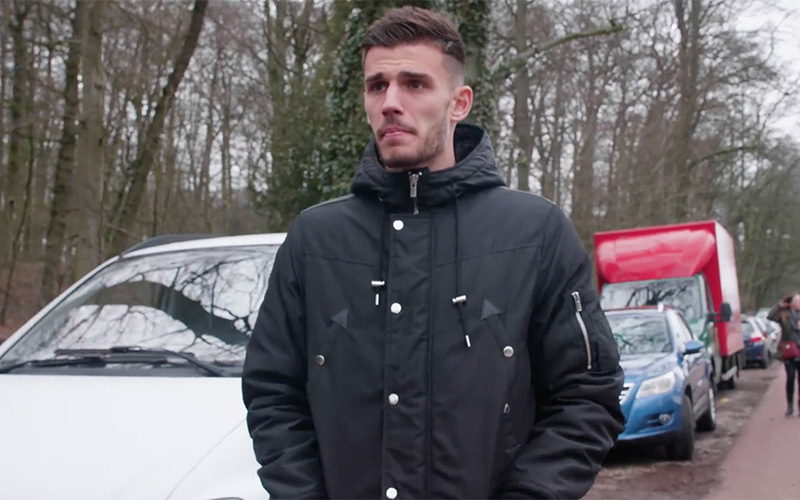
“I'm here to play football,” Miazga said. “I go train, I sleep, I eat, I rest and repeat and play games. It’s not a big city. There’s no distractions, no extracurricular activities. You just come home, do what you have to do, focus on your craft and prepare. That’s been very beneficial for me.”
Miazga’s parents forged his one-track mind from an early age. He started to play soccer because his Polish parents grew up around the game back in their home country. When he first started to kick the ball around at age four, it didn’t take long to realize that his parents passion would also become his.
“A lot of different kids, a season comes and they play a different sport,” Adam Miazga, Matt’s father said. “I said to him ‘You’re not going to play a different sport, you choose one sport, what you want to do. We’re not going to jump from flower to flower and try everything and when the season is done, you don’t know anything. If you want to play soccer, let’s do it.’”
The local Clifton Olympians provided Miazga’s first competitive soccer, but as he conquered game after game in his small pond, a new challenge became necessary and Miazga joined the New York Red Bulls’ academy set-up. He once again rose to meet each obstacle in his path, and conquered the U.S. Soccer Development Academy as a
U-15/16 age group champion in 2012.
“Football being my passion kind of drove me to an obsession where I want to develop and become the best footballer I can be,” Miazga said. “Playing at Red Bull, being at a top program and playing with the best players in the country really drove me and really helped me develop and establish myself.”
His imposing frame and knack for physical, lock-down defense caught the attention of scouts from all over as he led the Red Bulls to the Academy championship. Miazga signed a letter of intent to attend the University of Michigan in 2012, but the Red Bulls organization had bigger plans for the young defender. In 2013, he signed as the eighth Homegrown player in club history.
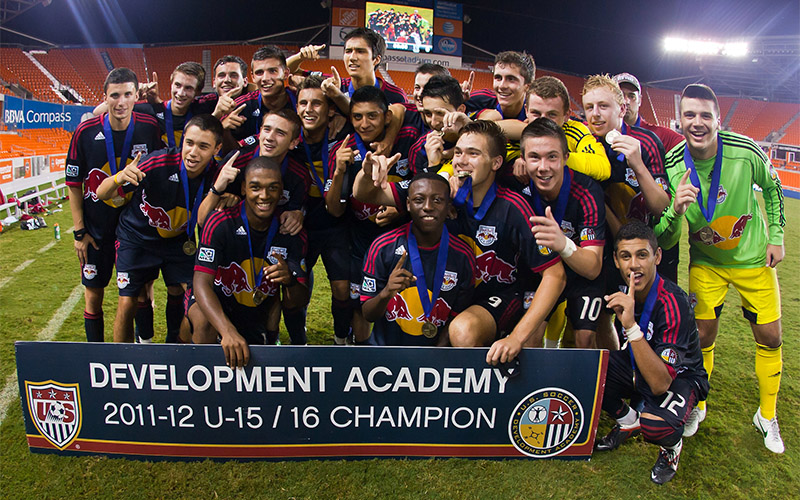
Miazga’s first professional contract indicated that he figured into New York’s future plans, but his progress began slowly. In 2013 and 2014, Miazga only saw the field sparingly across a handful of appearances. Everything changed in 2015, when new head coach Jesse Marsch came to Harrison, N.J. Miazga would carry the banner for a wholesale shift in organizational philosophy.
“I felt strongly that Matt just needed to be challenged in a big way,” Marsch, now an assistant coach for German Bundesliga side RB Leipzig, said. “There was a lot of change in the organization, an emphasis away from the superstar player and more toward developing young players. He was never really entrusted to do the job. It was mostly because it was a team of veterans and a team of very established players.
“In the previous teams, the young guys were treated like the guys who carried the bags and they were the butt of the jokes, but they weren't really engaged as a real part of the team. I told him for that mentality and shift to change, it was going to be on his shoulders and even though he was 19 and it wasn't fair for to demand that he become a man now, it’s the reality of this business. The best young players, they grow up quickly.”
Prior to 2015, Red Bull Arena had served as a final home for some of the game’s biggest names and a haven for MLS veterans. Legends like Thierry Henry closed out their careers in Harrison and the team enjoyed moderate success. Marsch had other ideas. He gave Miazga just what he needed: an opportunity.
“He gave me that role to try to establish myself as a significant member of the team,” Miazga said. “I embraced that challenge. I thought I took it on well and he kept pushing me along. I really knew what it meant to be part of a professional team fighting for trophies.”
Marsch’s trust in Miazga may have seemed misplaced at the start. In the season’s first match, the young center back committed several errors that almost cost the Red Bulls a draw on the road at Kansas City. After New York survived to salvage a point against Sporting, Marsch didn’t show Miazga the bench. While they broke down his mistakes, they took more time to discuss his mindset and how he translated the tactics to the field. Miazga started for the Red Bulls the following week, and logged 24 more appearances throughout the season.
Miazga’s mission in those matches: shut down the opponent’s best attacking threat. Week in and week out, he would line up with a singular focus to shut down the most dangerous strikers in the league. Sebastian Giovinco. David Villa. Cyle Larin. No matter who lined up on the other side of the field, Miazga would do everything in his power to keep their name off the scoresheet.



